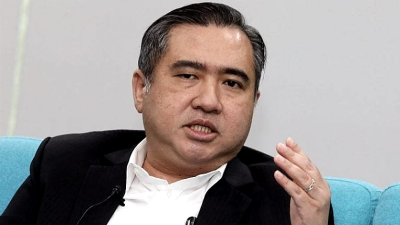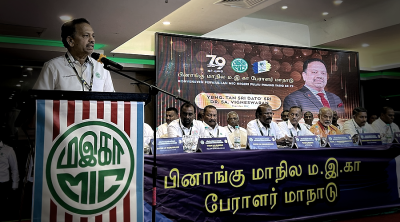KUALA LUMPUR: Malaysia’s economy recorded a better-than-expected expansion of 5.6 percent in the first quarter of 2023 driven mainly by private sector expenditure.
Bank Negara Malaysia (BNM) governor Tan Sri Nor Shamsiah Mohd Yunus said the growth in 2023 was supported by further expansion of household spending, continued investment activity, improving labor market and higher tourism activities.
On a seasonally adjusted basis, she said the economy has recovered to its pre-pandemic levels.
“The labor market continued to strengthen in the first quarter of 2023 and is expected to remain supportive of domestic demand.
“The whole economy is no longer in crisis and, in fact, continues to gain strength,” she said when announcing the 1Q 2023 performance here today.
Nor Shamsiah said that during 1Q 2023, private consumption increased by 5.9 percent, private investment (4.7 percent) and public investment (5.7 percent), but public consumption declined by 2.2 percent due to lower supplies and services spending.
Despite regional exports continuing to contract amid weak demand for goods, Malaysia’s net exports rose 54.4 percent in 1Q 2023 on further recovery in tourism activities, she said.
On sectoral, the governor said the services sector was the main impetus of the economy, growing by 7.3 percent in 1Q 2023 supported by both consumer and business-related service activities.
Manufacturing went up 3.2 percent in the first quarter, agriculture (0.9 percent), mining (2.4 percent), and construction (7.4 percent), she said.

The unemployment rate has further improved during 1Q 2023, declining to 3.5 percent against 3.6 percent in the fourth quarter of 2022.
“The unemployment rate gradually improved towards pre-pandemic levels, driven by steady employment growth, in tandem with the expansion in economic activity… the economy will approach full employment by the end of this year,” she said.
As for the current account, Nor Shamsiah said it accounted for 1.0 percent of the GDP in 1Q 2023 or worth RM4.3 billion, compared with 5.9 percent (RM27.5 billion) in the fourth quarter of 2022 amid smaller goods surplus on the back of moderation in external demand.
On the investment front, she said investing in large infrastructure projects is progressing without major delays, including the East Coast Rail Line (ECRL), Light Rail Transit Line 3 (LRT 3), and Pan Borneo Highway in Sabah.
Malaysia recorded RM12 billion foreign direct investment (FDI) in 1Q 2023, compared with RM19.2 billion in 4Q 2022, which was mainly channeled into the financial services sub-sector as well as mining and manufacturing services.
On inflation, Nor Shamsiah said headline inflation trended lower to 3.4 percent during 1Q 2023 in line with moderating costs and supply conditions, while core inflation declined to 3.8 percent but remained elevated, reflecting resilient domestic demand.
“The current core inflation has remained high for longer, even as costs have begun to moderate, strong economic activity has continued to generate demand-driven pressures which have kept inflation elevated.
“We can observe this beyond conventional demand indicators, such as in retail trade and credit card spending data or even when we go to shopping malls and restaurants and see long queues and traffic jams,” she explained.
The governor added that the ringgit had shown a broadly stable performance during 1Q 2023 despite shifting sentiments surrounding the global economic outlook and it continues to be driven by the United States dollar developments.
The local currency appreciated by 0.1 percent against the US dollar during the quarter under review.
ADVERTISEMENT
ADVERTISEMENT


































